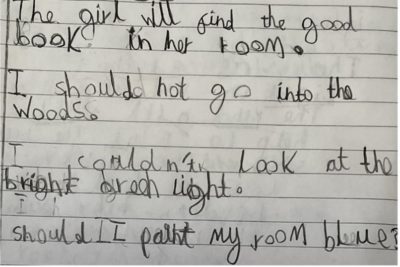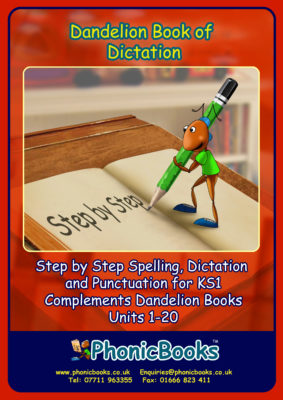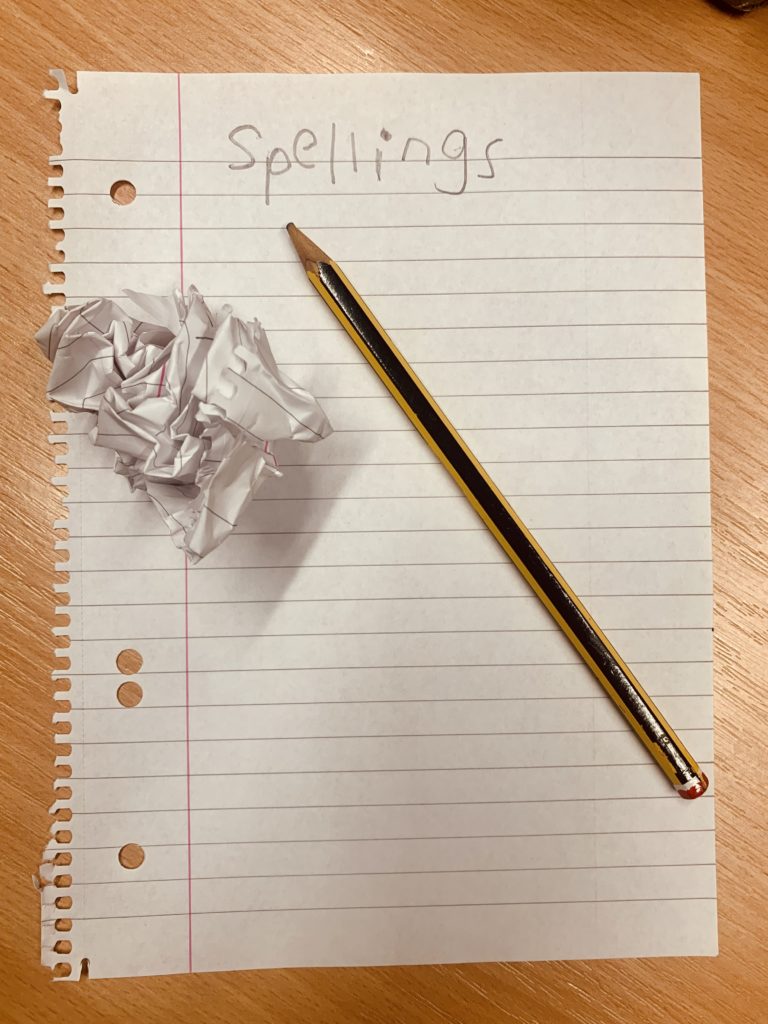“My child gets 10/10 on their spelling tests but then forgets their spellings when free writing.”
This is a statement that I often hear from parents. In schools, children typically get a weekly spelling list which they practise and then get tested on at a single word level. The next week, they receive a new spelling list and repeat the process. A common problem with this method is that the children learn how to spell the words but then forget them, making generalisation challenging. There are a few useful strategies that I encourage teachers and parents to adopt to help children to retain their spellings and apply them to their free writing.

How to help a child generalise learnt spellings into their free writing
1. Spiral learning – Spiral learning is a method of instruction that teaches students a topic gradually and repeatedly, with the goal of consolidating their understanding of that idea over the course of time. In the context of spelling, this means constantly revising previously learnt spelling words alongside new words. So, for example, you might introduce new spelling words but continue to practise previously learnt words/vowel digraphs alongside this.

2. Dictation sentences – Generalising spellings into free writing can be challenging for many children. One good strategy to help this process is using spelling words in ‘dictation sentences’, an activity in which the teacher/parent develops a sentence which includes the child’s spelling words. These sentences may include both the child’s current spelling words and also previously learnt words. It is best to avoid too many new words that the child has not yet learnt. For example, if a student has learnt words with the sounds ‘ai’, ‘ay’ and ‘ee’, an example dictation sentence might be ‘The green snail will stay on the train’. You could also support development of punctuation by adding questions, proper nouns, commas and direct speech depending on the child’s level (e.g., ‘Did it rain in Spain?’).
The Phonic Books website provides examples of dictation sentences for the initial code.
3. Dictating short phonics stories – Decodable books can be used to dictate short stories to your students. They can write the words to the stories that you dictate and make their own picture book. I find that Phonic Books are a great resource to reinforce specific sounds and help children to generalise their spellings within short stories.
4. Focus on specific sounds within free writing – Choose two to three sounds that you know your child has worked on and write them on the top of the page when they are completing a free writing task (e.g., ‘ai’, ‘ay’, ‘ee’). You can ask them to underline any words that they use that have these sounds and help them to proofread and check the spellings of these words once they have completed their writing. This will help them to start thinking about some of their spellings within context. Initially, children may not have learnt all the different ways to spell a specific sound (e.g., ‘ai’, ‘ay’, ‘ey’, ‘ea’, ‘a-e’ all making the same sound but spellt differently) but this can still be used as an opportunity to support them with what they have already learnt and to discuss when a new spelling for the same sound comes up in their free writing.
Note: This article does not discuss the selection of spelling words. The author recommends using an evidenced-based programme such as Sounds-Write to teach phonics/spelling in a structured manner.
#spellingtests #spirallearning #freewriting #dictationsentences #spellingmatters
* * *
Hema Desai is the Director of Connect: Literacy, Speech and Language Services. She has had over 20 years of experience working as a Speech and Language Therapist and is also a qualified specialist teacher, trained in the Sounds-Write programme. Hema is passionate about supporting students to develop their literacy skills.


